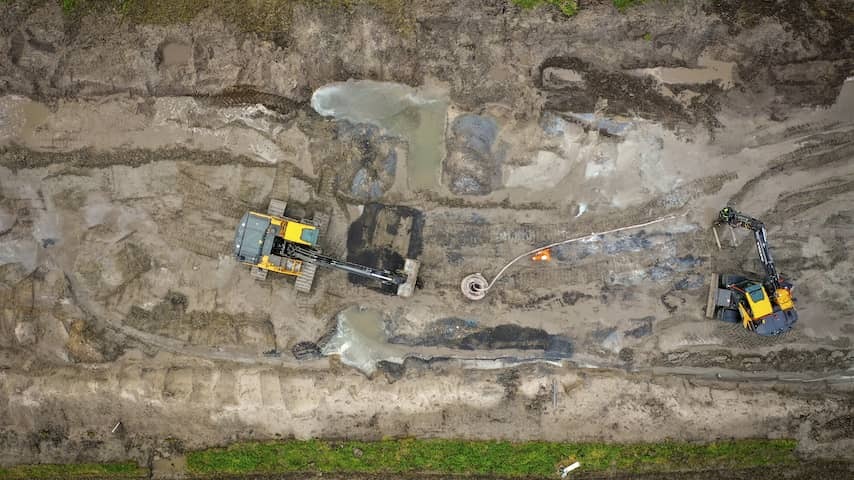
Two contractors have been given community service sentences for improper use of environmentally polluting steel slag in Hellevoetsluis. The company that commissioned the work has been sentenced to a suspended fine of 25,000 euros.
More than 60,000 tons of steel slag, originating from steel manufacturer Tata Steel, were transported to a polder in Hellevoetsluis in 2019. Eventually, there was even a plan to use more than ten times that amount for the construction of a 30-meter-high artificial hill to attract tourists.
But when the first batch of steel slag was used to construct a temporary road, things quickly went wrong. The hundreds of trucks that drove over it caused significant dust clouds. This led to health complaints in the area, ranging from eye irritations to nosebleeds. Later, rainwater with the pH value of drain cleaner flowed from the steel slag into a nearby ditch.
Steel slag contains unslaked lime and a mixture of various heavy metals. In contact with rain or groundwater, this can lead to environmental problems. If the dust comes into contact with nasal or eye fluid, the high lime content leads to health complaints.
In breach of duty of care
The contractors who carried out the work in Hellevoetsluis should have taken more measures to prevent these problems. According to the Rotterdam District Court, they should have sprayed the steel slag more often, laid a thick layer of sand under the material, and prevented the contaminated water from entering a ditch. By failing to do so, they acted in breach of the duty of care under two different environmental laws.
The contractor who purchased the steel slag from trader Pelt & Hooykaas receives a community service sentence of 180 hours, 60 of which are suspended. The court takes it badly that he still “does not feel responsible for the situation that has arisen.” The supervisor of the work in Hellevoetsluis receives a slightly shorter community service sentence of one hundred hours.
The sentences are almost the same as the demands of the Public Prosecution Service (OM). As far as is known, this is the first time that community service sentences have been imposed for causing environmental damage with steel slag.
The company that commissioned the work receives a suspended fine of 25,000 euros. The OM had demanded an unconditional fine of 75,000 euros, but the court is more lenient. This is partly because the company has already had to pay more than 1.5 million euros to have the steel slag removed.
Steel slag was moved
However, this only solved the problem locally. The steel slag was moved to Oude-Tonge, where environmental damage occurred again. A fine was issued there to the company that used the steel slag, but it was overturned on appeal. According to the Court of Appeal in Breda, the company had violated the law by causing environmental pollution, but had always followed the instructions of the supervisor. Therefore, a fine was not appropriate.
In The Hague, the use of steel slag has recently been under scrutiny. Next year, a national reporting requirement will be introduced for the use of the material. The House of Representatives even wants it to be temporarily banned.
Research by NU.nl and Investico previously showed that steel slag is present at at least 115 locations in the Netherlands, but that is still a considerable underestimate. Many local authorities do not know where steel slag has been used, and new locations are still regularly discovered throughout the country.